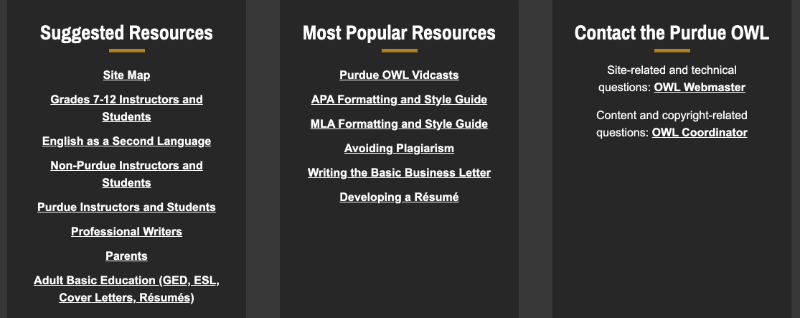
When learning foreign languages, often grammar is one of the most difficult moments. However, there are different approaches - someone thinks that the main thing is to learn more words and imagine how to apply them, then you will be understood with grammatical errors. Someone does not agree and is convinced that if you are trying to write something, be kind enough to work on the grammar.
It is clear that no one is safe from mistakes, especially non-native speakers. But if we learn a language in order to use it, for example, in work, then it is very important to learn to write with a minimum of errors. Otherwise, the text may be misinterpreted, which will lead to real difficulties.
I found an interesting post on how to improve grammar for those who want to learn how to write well in English. I present to you an adapted translation of this useful material.
Start: to understand what “good grammar” is
When we talk about someone who has “bad grammar”, this usually means that the person probably doesn’t know how to express his thoughts correctly using the language. That is, does not comply with the laws of written English. It turns out that a person simply does not have enough information about how to do it.
There are not many options here - you need to learn. On the Internet there are a bunch of specialized blogs, resources and books on the grammar of the English language. One of the best is English Grammar in Use, authored by Raymond Murphy.

Another good idea is to hire a teacher with the goal of upgrading your writing skills. Each person has moments that are given to him worse or better, so getting a look from the outside is very useful. This will quickly get a set of their most popular errors and eliminate them. Studying Murphy’s huge book for this purpose can be an overwhelming task.
Method # 1: combining sentences
One of the problems of non-native speakers is the desire to use more complex sentences than the situation requires. In fact, in many cases, short sentences solve communication problems better than longer ones. In addition, using combinations of short sentences is a great way to learn how to build long structures.
For example, we can write two short sentences:
I'd never been there before. I loved it anyway.
If desired, they can easily be combined into one longer:
I'd never been there before but I loved it anyway.
This is a great learning tool. You can write a series of short sentences, and then look at them and think what exactly you can do with them: how to complicate, add inversion, etc.:
I loved it anyway, despite having never been there before.
In this example, we used the knowledge of punctuation, conjunctions, compound sentences, etc.
Another way to learn is to write some sentences with the pronoun I:
I live in Chicago.
I like ice cream.
I'm 22 years old.
I'm a vegan.
Now you can create a proposal in which all these facts will be combined:
I'm a 22-year-old native of Chicago who loves ice cream despite being vegan.
It sounds much more "solid", right?
The most important thing is to always remember that in many cases complex sentences are simply not needed. Learn not to complicate writing where it is not required. Learning to identify such moments can only be practiced constantly.
Method # 2: read more
Fact - reading helps improve writing skills. When you read, you develop a sense of language, memorizing examples of the use of certain constructions. It is important to read not only classics or serious books in general, but also journalism, articles on the Internet, especially related to your work. So you can learn exactly the writing style that is best suited for a particular industry.
An important point: today there are tools that make online reading even more effective. For example, this extension for Chrome helps to know the meaning of any word that you find in text on the Internet. It’s useful to use such tools when reading complex sources (the language in the conditional The New Yorker is not so simple).

Method # 3: write sentences and read them out loud
It often happens that when we write something, it seems to us that the text is not bad. In fact, this may not be the case for a native speaker. It is amazing how many errors and incorrectness you can find by simply reading what you wrote out loud.
At this point, you will most likely realize that some words simply do not fit, or that it is better to replace them with synonyms. And the search for such similar words will help to greatly expand the vocabulary. As a result, the texts will become even more diverse.
Method # 4: use online tools
It is foolish not to use the fruits of civilization and new technologies. Today, there are many tools that facilitate the study of grammar. Here are just a few of them:
- GrammarBook . An excellent source of knowledge of English grammar with many thematic tests and quiz.
- Purdue Writing Lab . Another excellent resource where you can find materials for study, as well as specific tips for writing texts of a certain format from resumes to research papers.
- Grammarly . Perhaps the most famous program to improve the quality of writing. Corrects errors and gives recommendations for improving the text.
- Linguix . Something like an application that is more focused on language learning, there is a library of templates for ready-made texts (from essays to press releases), a secret mode for working with important documents, and functions to expand the vocabulary.

Screenshot: Purdue Writing Lab
Conclusion
Learning grammar is a long and difficult process. Do not be afraid of difficulties, ashamed of mistakes. It is important to remember that even educated native speakers periodically make mistakes. The main thing is not to stop learning, constantly reading and practicing.
What methods / tools do you use to improve your written English skills? Write in the comments!